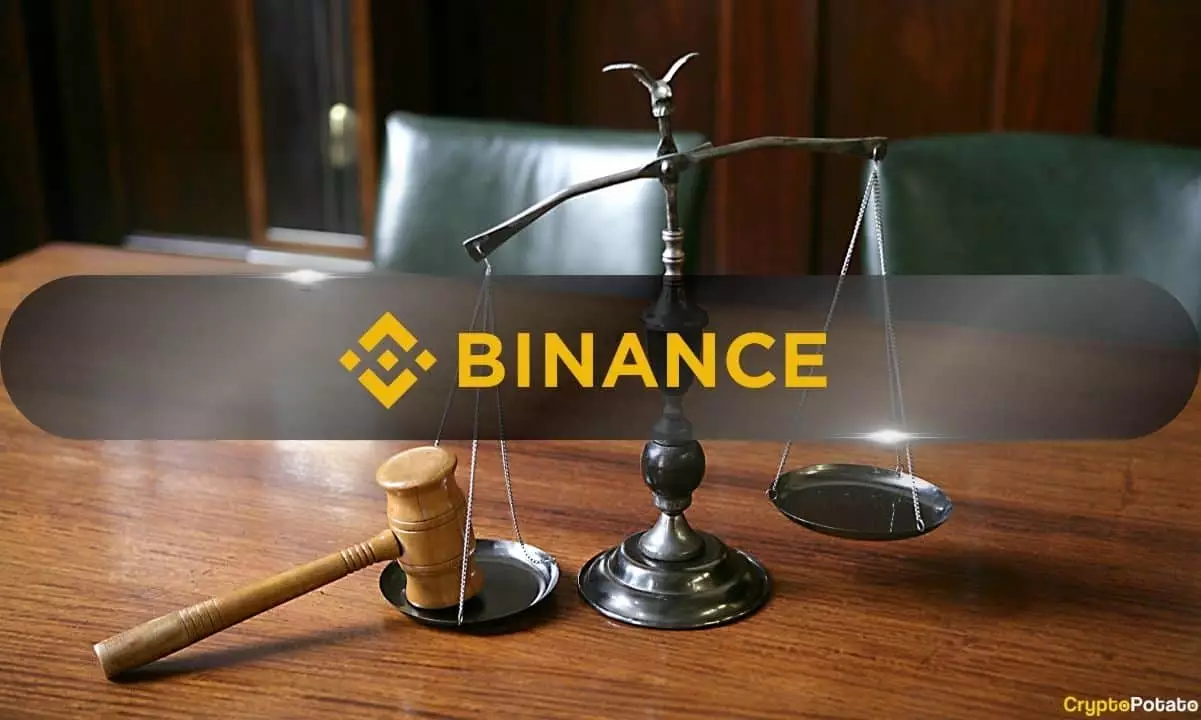The legal landscape surrounding cryptocurrency exchanges is dense and often tangled, and few cases exemplify this complexity better than that of Binance and its founder, Changpeng Zhao. The recent decision by the U.S. Supreme Court not to hear Binance’s appeal poses critical questions about the application of U.S. securities laws on foreign entities. This rejection reinforces the challenge faced by exchanges operating in a global context while also catering to U.S. investors, forcing them to navigate a myriad of regulatory frameworks.
At the heart of the matter lies a crucial January 13 ruling initiated by a group of investors who accused Binance of unlawfully selling unregistered tokens. Such allegations emerged from significant declines in these tokens’ values, raising red flags about the legality of Binance’s operations in the U.S. The ruling asserts that despite Binance lacking a physical presence on American soil, it is indeed subject to U.S. securities regulations due to its services provided to U.S. clients. This creates a precedent for how digital and virtual transactions are treated legally, posing potential complications for international platforms that cater to American consumers.
The U.S. Court of Appeals for the Second Circuit found sufficient grounds to apply U.S. securities laws based on the simple fact that transactions by American investors were processed within the U.S. A significant point made in the ruling was the assertion that since trades were executed on American servers, the exchange was compelled to comply with U.S. legislation. This case highlights the evolving nature of global finance, where digital conveniences can inadvertently complicate regulatory compliance.
In response to the court’s ruling, Binance argued that advancements in technology have allowed American investors unprecedented access to foreign platforms, suggesting that this global interconnectivity should exempt them from U.S. jurisdiction. This defense inherently challenges traditional views on where jurisdiction lies, as the digital realm operates in a space where borders are becoming increasingly less defined. However, the appeal’s dismissal signals an unwillingness on the part of the Supreme Court to entertain such arguments.
This case is enmeshed within a broader narrative encompassing the operations of cryptocurrency exchanges that have attracted scrutiny from regulatory bodies. From the U.S. Securities and Exchange Commission (SEC) alleging illegal servicing of U.S. clients to various class action lawsuits and settlements involving significant amounts, Binance has found itself front and center in the ongoing conflict between innovation and regulation.
Binance’s situation has raised profound implications not only for itself but for the cryptocurrency industry at large. With the Supreme Court’s refusal to hear the case, the pathway for the ongoing class-action lawsuit regarding the alleged illegal sale of unregistered tokens seems clearer, while simultaneously emboldening other regulatory bodies to take action against similar platforms. There is now a palpable sense of urgency among crypto exchanges to reassess their compliance protocols, ensuring that they are not subjected to similar legal scrutiny.
With Binance recently agreeing to a hefty settlement with the U.S. Department of Justice for violations concerning anti-money laundering and terrorism financing laws, this raises questions about the future of other exchanges and their conduct as well. The past year has already seen Binance embroiled in multiple legal battles, including a contentious class action suit in Canada, and the fallout from the FTX debacle casts a longer shadow over its operations.
As Binance contemplates its next steps in light of the Supreme Court’s latest decision, the broader implications for cryptocurrency exchanges remain a pressing concern. The regulatory scrutiny is unlikely to wane; in fact, it may intensify as lawmakers and regulatory bodies grapple with how to manage the ever-evolving landscape of digital finance. For exchanges navigating these turbulent waters, an immediate reassessment of strategies, legal compliance, and consumer transparency will be a crucial step forward.
Navigating the complexities of international laws and regulations will be paramount. As the cryptocurrency universe continues to expand, the need for clear, coherent legal frameworks will only grow. Companies like Binance will need to adapt to this reality, balancing their innovative capabilities with the mandates of legal accountability. The world of cryptocurrency is at a critical juncture, and how it responds to these challenges will undoubtedly shape its future trajectory.


Leave a Reply